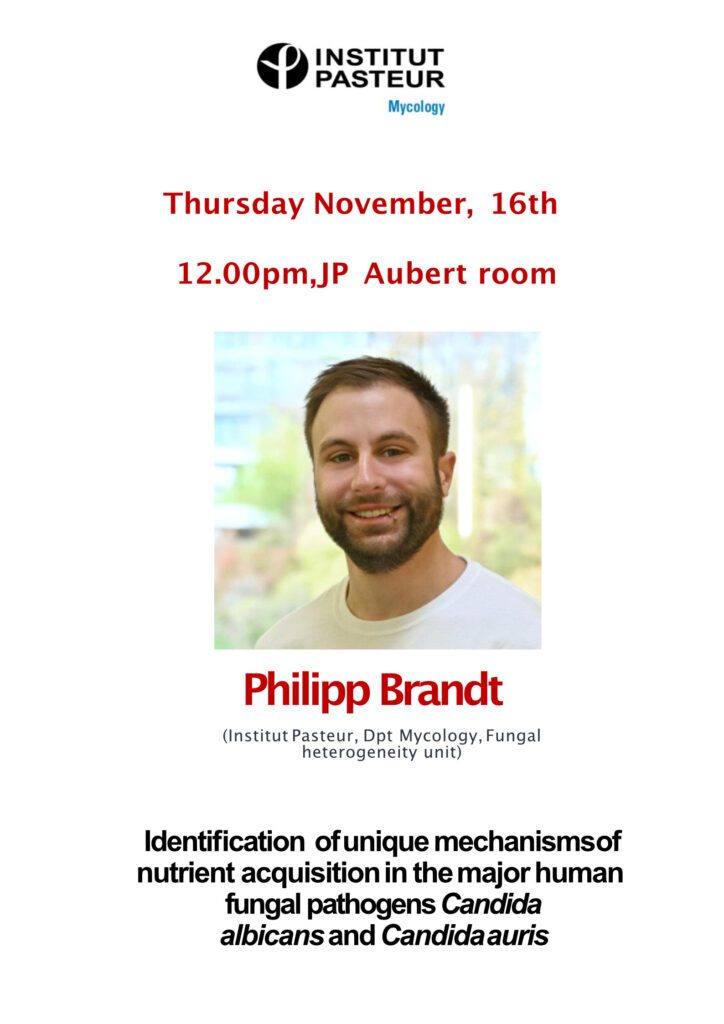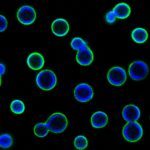Présentation

Abstract:
One of the most important virulence characteristics of human pathogenic fungi is their ability to utilize a wide range of carbon and nitrogen sources, which enables the colonization of various host niches and adaptation to rapidly changing environmental conditions. The number of fungal pathogens resistant to common antifungal drugs is increasing, and new antifungal drugs are urgently needed. Potential targets could be fungal specific nutrient transporter, metabolic enzymes, and their regulators such as protein kinases.
A subset of C. albicans protein kinase deletion mutants was tested for their role in nutrient acquisition processes. The Candida species unique protein kinase Sky2 was identified as having an important role in dipeptide and dicarboxylic acid uptake. The dipeptide transporter Ptr22 and the dicarboxylate transporter Jen2 were identified as potential substrates of Sky2. Transcriptional and metabolic profiling revealed a Sky2-dependent regulation of the central metabolism and energy homeostasis in C. albicans.
A high-throughput phenotypic screening of C. auris isolates from the 4 major clades revealed common and clade/strain-specific metabolic profiles. All isolates were able to utilize a variety of dipeptides as a nitrogen source. In addition, most C. auris isolates showed robust growth on di- and tricarboxylic acids but severely impaired growth on monocarboxylic acids. Genome analysis indicate that C. auris does not possess the monocarboxylate transporter Jen1 that is conserved in Candida species. Transcriptional analyses identified a significant number of induced C. auris-specific genes in response to alternative carbon sources and dipeptides as nitrogen source.

